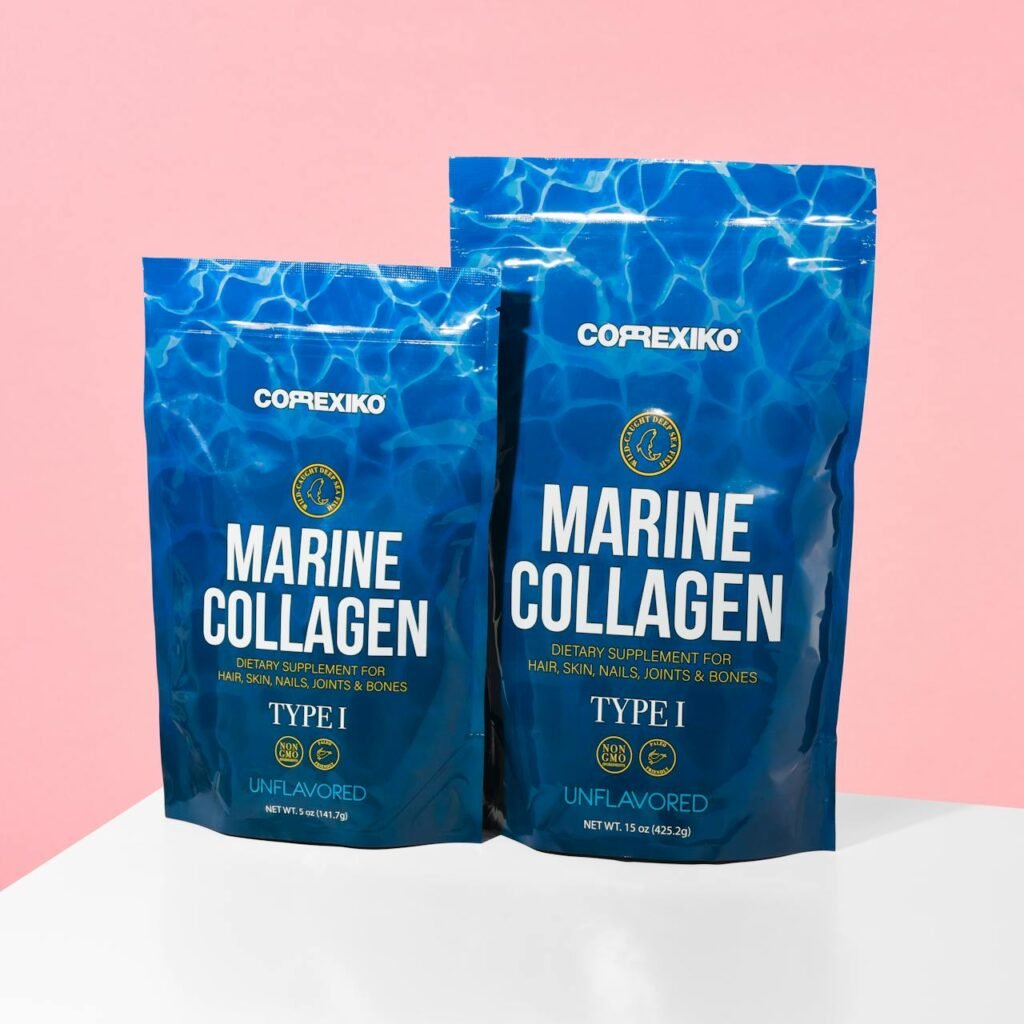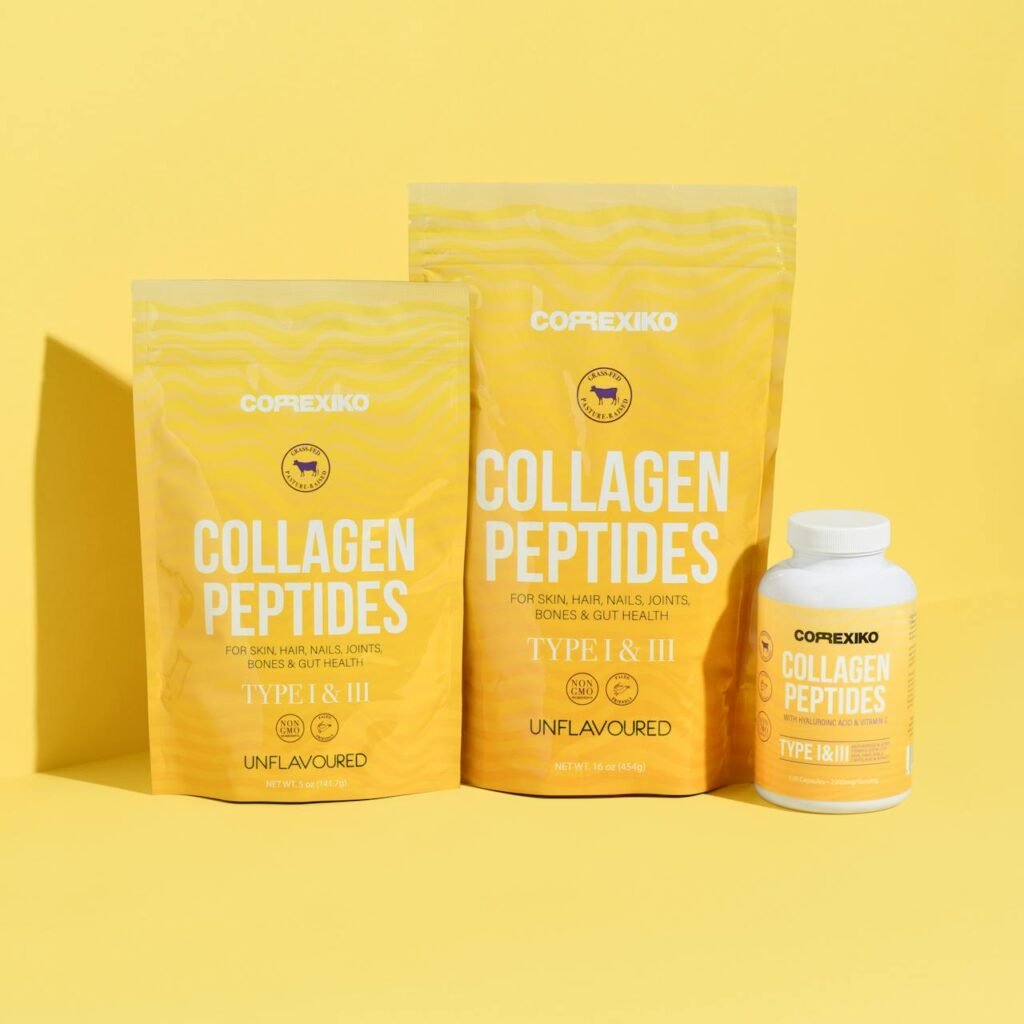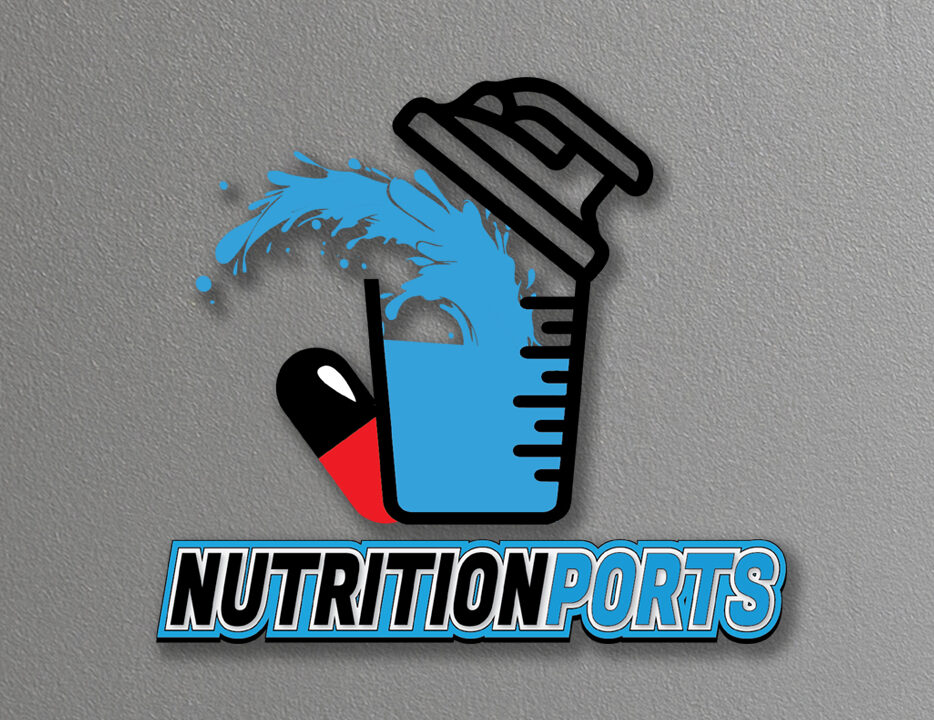Collagen vs Creatine—which one is best for muscle recovery and injury rehabilitation? Should you focus on creatine for strength and endurance or collagen for tendon and joint repair?
More importantly, can combining both unlock even better results for athletes and active individuals?
Struggling with sore muscles, slow recovery, or nagging joint pain? Choosing the right supplement could make all the difference.
When it comes to muscle recovery and performance, two supplements dominate the conversation—collagen and creatine. But which one is truly the best supplement for muscle recovery: Collagen or Creatine?
Read also: Creatine HMB vs Monohydrate 2025 – Which One Is Better for Muscle Growth? | A detailed guide comparing two powerhouse forms of creatine.
Is one better for rebuilding muscles, while the other excels at protecting joints and tendons? Or do they work together for optimal results?
In this guide, we break down the key differences, scientific benefits, and real-world applications of both supplements. Whether you’re an athlete pushing your limits or simply want faster recovery after workouts, understanding the right supplement can help you train harder, recover smarter, and perform at your peak.
Let’s get straight to the facts—which one should you choose?

Table of Contents
What is Collagen?
Can the right supplement actually strengthen your joints and speed up recovery?
Collagen is the most abundant protein in the human body, acting as the structural backbone of tendons, ligaments, and cartilage. It plays a crucial role in keeping your joints resilient and muscles supported—but not all collagen is created equal. ▍Also read: Thorne Collagen Fit vs Collagen Plus 2025 – Which One Is Better For Recovery?
A detailed breakdown of two leading collagen supplements designed for active recovery and joint support.
This is where collagen peptides for joint and ligament recovery stand out. Unlike regular collagen, peptides are hydrolyzed for better absorption, making them a game-changer for injury prevention, tissue repair, and overall mobility. But how do they compare to creatine in supporting recovery? Let’s boil it down.
Collagen: The Building Block of Tissues
When it comes to healing tendons, should you be reaching for collagen or creatine?
Collagen is the most abundant protein in the human body, acting as the structural foundation for skin, bones, tendons, and connective tissues. Think of it as the glue that holds everything together, providing both strength and flexibility to withstand physical stress.
Made up of key amino acids—glycine, proline, and hydroxyproline—collagen forms a unique triple-helix structure, giving it exceptional tensile strength. But when it comes to recovery, what’s the best supplement for tendon healing: Collagen or Creatine? One directly supports connective tissue regeneration, while the other enhances muscle power and endurance.
Key Points About Collagen
- Major structural protein in the body
- Found in skin, bones, and connective tissues
- Unique triple helix structure for strength and elasticity
- Composed of amino acids like glycine, proline, and hydroxyproline
Role in Health and Aging
As we age, should we prioritize Collagen or Creatine for better joint health and longevity?
With time, the body’s natural collagen production declines, leading to wrinkles, joint stiffness, and reduced mobility. This is why collagen supplements have surged in popularity—offering benefits like improved skin elasticity, stronger joints, and overall tissue repair.
But where does creatine fit into the equation? While collagen supports connective tissue and joint health, creatine plays a key role in muscle strength and energy production. When it comes to Collagen vs Creatine, understanding how they complement each other can help you make the best choice for long-term vitality and peak performance.

What is Creatine?
When comparing Collagen vs Creatine, understanding creatine’s role in recovery is key. Creatine is a powerhouse supplement known for boosting strength, endurance, and muscle performance.
– and for those tracking workouts or coaching others, tools like My PT Hub can complement your recovery and training journey.
It works by replenishing ATP levels, providing the energy muscles need for high-intensity training.
But when it comes to recovery, is creatine or collagen the better choice? The best supplement for muscle recovery: collagen or creatine? depends on your goals—creatine fuels muscles, while collagen strengthens joints and tendons. Let’s dive deeper into the science behind both.
Creatine: A Key Player in Energy Metabolism
Creatine is a naturally occurring compound found in muscle cells, where it helps generate rapid energy for intense exercise and heavy lifting. It’s made from three key amino acids—glycine, arginine, and methionine—and is primarily produced in the liver and kidneys before being stored in muscles, the brain, and other tissues.
But is creatine beneficial for recovery, or is collagen the better choice?
When it comes to Collagen vs Creatine for Tendon Injury Rehabilitation, the difference is clear—creatine enhances muscle power and endurance, while collagen strengthens connective tissues for better joint and tendon recovery.
Key points about Creatine
- A compound made from amino acids
- Found in muscle cells and aids in energy production
- Naturally produced by the body, also available in foods like red meat and fish
Benefits of Creatine
- Enhanced muscle mass
- Improved strength and performance
- Energy boost
- Supports brain health
Collagen Pros & Cons
Pros
- ✅ Boosts skin elasticity and reduces wrinkles
- ✅ Supports gut health and digestion
- ✅ Improves bone density and strength
- ✅ Promotes healthier hair growth
Cons
- ❌ Limited absorption in the body without Vitamin C
- ❌ May cause digestive discomfort in some individuals
- ❌ Can interact with certain medications
Creatine Pros & Cons
Pros
- ✅ May increase explosive power in sports and activities
- ✅ Supports tendon strength and injury prevention
- ✅ Enhances cognitive function and brain health
- ✅ Improves hydration at the cellular level
Cons
- ❌ Not suitable for individuals with certain pre-existing conditions
- ❌ Potential digestive discomfort for some users
- ❌ May lead to kidney strain with excessive use

Collagen Peptides vs Creatine – Which One Should You Choose?
Not all recovery supplements are created equal. Some rebuild muscles, others strengthen joints—but when it comes to collagen peptides vs creatine, which one works best for you?
Collagen Peptides vs Creatine: Head-to-Head
- Muscle Recovery: Creatine boosts muscle strength and energy production, while collagen peptides support tendon and joint repair.
- Absorption: Many wonder, is liquid collagen better than tablets? Liquid forms may absorb faster, but both deliver essential collagen benefits.
- Long-Term Benefits: Creatine enhances muscle power, while collagen strengthens connective tissues for injury prevention.

The Key Difference Between Collagen vs Creatine
Does Collagen or Creatine Support Muscle Growth?
- Creatine enhances muscle energy and strength, making it ideal for high-intensity workouts.
- Collagen aids in joint and tendon recovery, supporting overall tissue repair rather than muscle growth.
Which One Helps with Recovery?
- Collagen promotes faster tendon and joint healing.
- Creatine supports muscle recovery and energy replenishment after workouts.
FAQs
What is Collagen?
Collagen is the most prevalent protein in the human body, crucial for the health of skin, bones, joints, and other tissues. It’s responsible for skin elasticity, joint flexibility, and overall tissue integrity.
Does Creatine Increase Physical Capability?
Creatine can indirectly enhance physical performance by allowing higher training intensity and faster recovery.
Conclusion
In conclusion, our exploration of Collagen vs Creatine reveals distinct differences and unique benefits of each. Collagen supplements are pivotal for enhancing skin health, joint flexibility, and overall tissue integrity, especially as natural production decreases with age. On the other hand, creatine stands out in boosting muscle strength, enhancing physical performance, and aiding in quicker recovery post-exercise. Have you enjoy this comparison? let me know.




